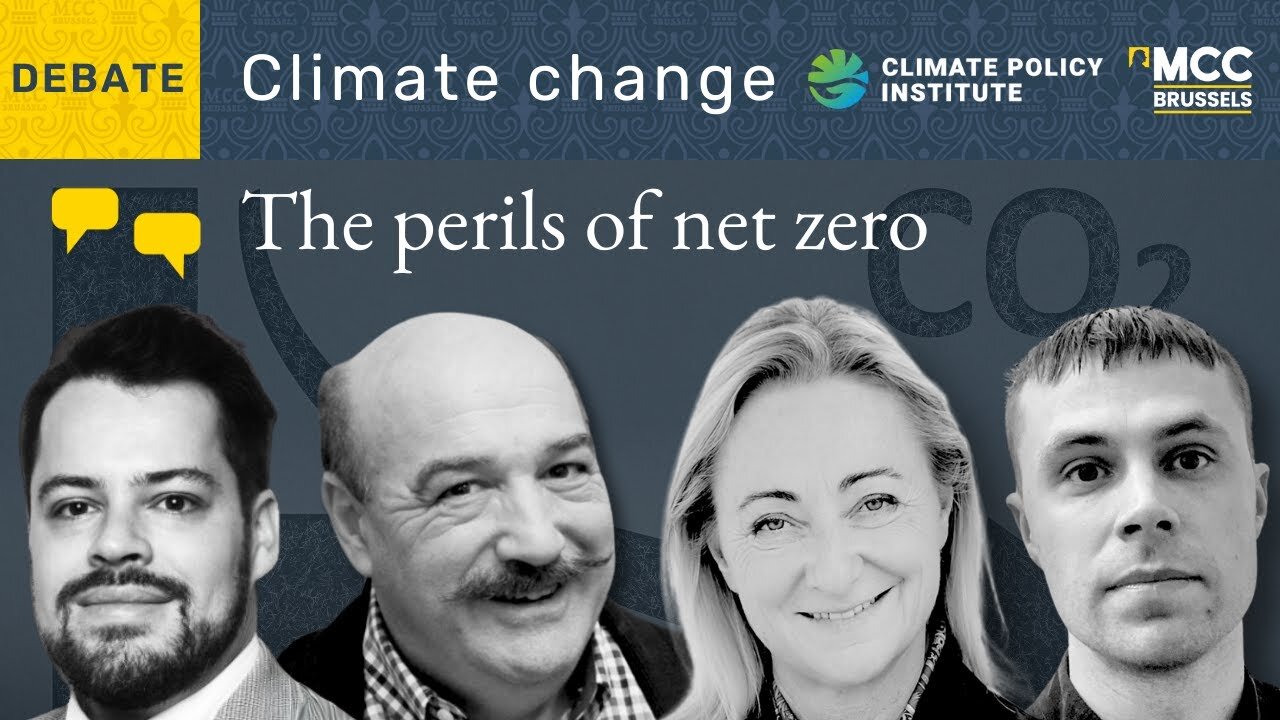Premium Only Content

Panel: Climate Change and the perils of Net Zero
Panel: Climate Change and the perils of Net Zero
Samuel Furfari, professor of energy geopolitics and energy politics, Free University Brussels
Johan Gardebo, research fellow, Clare Hall, University of Cambridge
Barbara Kolm, founder, Free Market Road Show; director, Austrian Economics Center; president, Hayek Institute and Professor of Austrian Economics, University of Donja Gorica, Montenegro
Richard Schenk, research fellow, MCC Brussels
Chair: Jacob Reynolds, Head of Policy, MCC Brussels
The Net Zero objective has become a key driver of EU policies such as the much vaunted and highly controversial EU Green Deal. As both proponents and critics agree: the Green Deal implies both a major centralisation of power away from nation states and a transformation of the way people live.
It would be an understatement to say that not everyone is happy with this transformation of how we live and work. Farmers, under immense pressure from the implementation of EU environmental policies, have engaged in European wide headline grabbing protests causing the European Commission to pause and review some of its measures. Similarly, in the face of mounting controversy over the Green Deal ahead of the European elections, the Commission has postponed the publication of its Heat Pump Action Plan. Moreover, the state of play with regards to the 2035 ban on new petrol car sales remains uncertain. In member states, the outlook is perhaps even more fractious, as widespread de-industrialisation – widely attributed to green policies emanating or inspired by the EU – looks set to lead to enormous political upheavals. Those reliant on the jobs provided by Europe’s traditional industries, from chemicals to cars, are a major source of potential unrest.
Now is a vital time to review and debate the wisdom and current trajectory of European environmental policy. Whilst it is essential to take the threat of climate change seriously, are net zero policies a help or a hindrance? When fossil fuels currently supply about 83 per cent of the world’s commercial energy, compared to 86 per cent in the year 2000, is the EU’s approach to their elimination pathbreaking or implausible? How can we best harness human innovation and ingenuity to mitigate and adapt to the consequences of climate change?
This panel is part of the event Climate Change: beyond the 'consensus': https://brussels.mcc.hu/event/climate-change-beyond-the-consensus
-
 LIVE
LIVE
FusedAegisTV
20 hours agoNYE Eve! - 2025 Incoming 🎉 - 12hr Variety Stream!
194 watching -
 1:18:52
1:18:52
Awaken With JP
7 hours agoSomehow The World DIDN’T End This Year! - LIES Ep 72
70.2K32 -
 1:19:34
1:19:34
Michael Franzese
5 hours agoWhat 2024 Taught Us About the Future?
72.7K17 -
 1:48:09
1:48:09
The Quartering
6 hours agoBird Flu PANIC, Sam Hyde DESTROYS Elon Musk & Patrick Bet David & Woke Witcher?
87.8K57 -
 4:47
4:47
SLS - Street League Skateboarding
3 days agoLiz Akama’s 2nd Place Finish at SLS Tokyo 2024 | Best Tricks
28.8K3 -
 4:06:54
4:06:54
LumpyPotatoX2
5 hours agoHappy New Year Rumble ! - #RumbleGaming
20K -
 10:37
10:37
One Bite Pizza Reviews
1 day agoBest of Barstool Pizza Reviews 2024
49K29 -
 2:37
2:37
Tate Speech by Andrew Tate
7 hours ago2025 WILL BE YOUR YEAR
85.5K31 -
 3:51:31
3:51:31
Sgtfinesse
8 hours agoRumble New Years Eve with Sarge
55.6K -
 LIVE
LIVE
Sm0k3m
9 hours agoNew Years Eve | Good bye 2024
75 watching